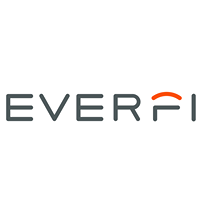Are you looking for a comprehensive training software? Our buyer's guide takes you through some expert insights and recommendations to help you to select a suitable one for your business.
Welcome to the ultimate guide for training software buyers. As companies around the world strive to remain competitive, the need for efficient and effective training solutions has never been more critical. With so many software options available on the market, choosing the right one for your organization can be a daunting task. That's why we've created this comprehensive guide to help you navigate this world, and make an informed decision that meets the unique needs of your company. In this guide, we'll take a deep dive into the different types of training programs, the benefits, and what to consider when making your purchasing decision. So let's get started.
What is training software?
This is an essential tool for companies looking to develop their workforce's skills and knowledge to achieve their business goals. It is a software program or suite of tools used to facilitate, automate, and manage employee training activities.
Common use cases of this essential tool include:
- Onboarding: New hires are introduced to the company's mission, values, and culture.
- Compliance training: Employees are trained on regulations, standards, and company policies.
- Skills development: Stafflearn new skills relevant to their job functions, such as project management, leadership, communication, or technical skills.
- Performance management: Employees receive feedback, coaching, and training to overcome performance gaps and achieve their career goals.
Training technology is used by companies of all sizes, from small businesses to large enterprises, and across various industries. Some of the industries that commonly use it include:
- IT and software development: Companies in this industry use it to deliver technical training and upskill their employees to stay ahead of the competition.
- Healthcare: Medical professionals use a training program to stay up-to-date with the latest medical procedures, policies, and technologies.
- Manufacturing: It is also used to improve quality control, safety, and compliance in manufacturing plants.
- Education: Educational institutions utilize it to offer online courses and distance learning programs.
8 key benefits of utilizing a training solution?
Training technology used across a wide range of sectors, helps organizations develop and maintain a skilled workforce, meet regulatory requirements, and boost productivity.
Here are some of the key benefits of implementing one:
- Cost-effective: It reduces costs related to in-person training, such as travel, accommodation, and instructor fees.
- Customizable: A training tool can be adapted to meet the specific business requirements, its industry sector, and job roles, delivering targeted, relevant training content.
- Flexible: It can also be delivered via online or offline modes, enabling employees to access training anytime, anywhere, and at their own pace.
- Self-paced: The solution provides a self-paced format, allowing employees to learn at a pace that suits them, without feeling rushed or falling behind. Statistics reflect that 81% of employees are interested in self-management training.
- Consistent: Training technologyprovides standardized training material that can be delivered consistently to all employees, ensuring consistency and accuracy of the training content.
- Accessibility: The software can be made accessible for employees with disabilities, promoting inclusion and compliance with accessibility requirements.
- Analytics: It provides analytics tools that help managers track employee progress, identify gaps in knowledge, and prioritize training areas.
- Profitability: Comprehensive training programs not only enhance employee skills and productivity but also contribute to higher overall company performance and profitability. Companies with such robust tools have 218% higher income per employee compared to those without formalized training and this highlights the financial benefit of investing in employee development.
10 key features of training software
Training technology comes with a range of key features that make it an invaluable asset to any business. Let us take a closer look at the 10 common ones to look out for, for any organization looking to improve employee performance and productivity:
1. Customization:
One of the most significant feature is flexibility which allows organizations to customize content to suit their specific training requirements. This feature enables companies to design training programs that fit their unique needs.
2. Gamification:
Equipped with games and simulations, a training system offers an interactive approach to learning, making the training process more engaging and fun for employees.
3. Progress tracking:
With real-time progress tracking, the solution allows managers to monitor employee performance levels, providing them with accurate metrics to evaluate training effectiveness.
4. Accessibility:
The ability to access training materials through the application anytime, anywhere, is one of the most significant benefits of this product. This additional feature ensures that employees can access training on their schedule, improving their chances of retaining information.
5. Collaborative learning:
Training software also facilitates collaborative learning, allowing employees to work together on projects, share ideas, and learn jointly, increasing engagement, and boosting creativity.
6. Interactive assessments:
Interactive assessments included in training software measure individual knowledge levels, providing feedback to both the employee and trainer, and helping to identify areas that need improvement.
7. Reporting:
The platform comes with essential features that allow generation of automated reports, which provide a snapshot of employee course progress and performance. Reports offer valuable insights, such as areas that require additional focus or those who have excelled in particular areas.
8. Certification:
With built-in certification features, this tool allows companies to issue certificates of completion for individual courses, leading to enhanced employee motivation and recognition.
9. Integration:
Most training software solutions are capable of integrating with other tools via APIs, ensuring seamless integration into your existing business software environment.
10. Scalability:
With the growth of an organization comes the growth of its employees. A training program provides scalable training solutions that can handle an increasing number of employees and training content, ensuring agility and flexibility as the organization expands.
What to consider when investing in a training platform?
The decision to select the perfect solution for your company can be a daunting task, especially with a wide range of options available. We've compiled a list of factors that businesses should consider when making your choice.
1. User-friendliness:
The system should provide a user-friendly interface that is easy to utilize and understand. Complicated software can add unnecessary time and frustration to the learning process.
2. Customizability:
It should be customizable to fit the specific needs of your business. Customizable software can improve engagement and help employees retain information better.
3. Learning analytics:
The training tool should provide detailed reports and analytics on employee performance. This data can help businesses identify knowledge gaps and employee strengths, allowing them to tailor their training programs accordingly.
4. Compatibility:
The system should be compatible with your existing operating systems, hardware, and software. Compatibility issues can lead to delays and increased cost.
5. Integration:
It should be able to integrate with other systems and applications used by your business, making it easier to manage and track employee progress.
6. Accessibility:
It should also be accessible from any location, allowing employees to access training materials from home or on the go.
7. Cost:
The program should fit within your business's budget. However, it's important to remember that more expensive software generally provide extra features and capabilities. It is also important to look out for any hidden costs the solution might have.
8. Support:
The training system should include adequate support and training materials. This can help businesses overcome any challenges they may face during the implementation process.
Emerging industry trends for training technology
As training technology becomes more advanced, companies are looking for the latest trends to keep their employees engaged and up-to-date with the latest skills. Here are some of the biggest trends that businesses should expect to see this year and beyond:
- Microlearning: This trend involves delivering short, bite-sized pieces of training content, which can be easily consumed and retained by employees. This is a popular trend that allows employees to engage with the training material in their own time and at their own pace.
- Artificial intelligence (AI)-based training: AI is being used to deliver personalized learning experiences with training modules based on employee skill gaps and learning preferences. This results in more effective training that translates into improved job performance.
- Gamification: Gamification is the use of game elements in a non-game context to motivate and engage users. This trend makes learning more fun and interactive by using rewards, progress-tracking, and competition.
- Virtual reality (VR) and augmented reality (AR): As VR and AR technology improves, it is increasingly being used for training simulations. This trend allows employees to learn in a risk-free and engaging environment.
- Mobile-first learning: With mobile devices becoming increasingly ubiquitous, there is a drive towards mobile-first learning. This trend allows employees to access and engage with training materials anytime, anywhere.
Overall, these trends aim to make learning more effective and engaging for employees. As businesses continue to evolve, staying up-to-date with the latest trends in training software will be critical for success in 2024 and beyond.
Conclusion
In conclusion, implementation of a training app has demonstrated significant potential in enhancing the learning and development process. Moving forward, regular updates and user feedback will be crucial in ensuring the software continues to meet the evolving needs of any workforce. According to Gartner, 93% of employees are eyeing the exit door unless their companies show some commitment to their career growth, so businesses might want to invest in L&D solutions to maintain stable employee retention.








